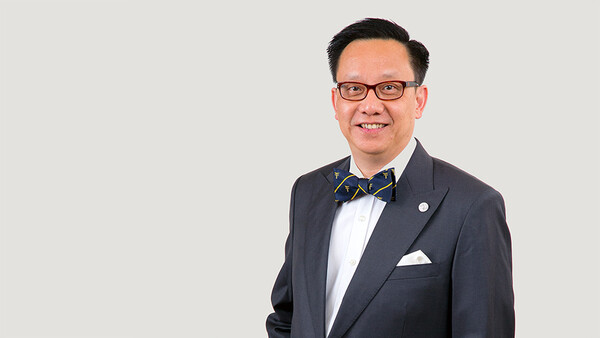Similar to other Asian nations grappling with declining birth rates, Singapore experienced a record-low total birth rate of 1.05 in 2022, surpassing the previous records of 1.1 in 2020 and 1.12 in 2021.

Singapore's low birth rate remains a pressing demographic concern, posing challenges to its aging population and the sustainability of its economy.
Singapore's declining birth rate can be attributed to a confluence of factors, including rising affluence, shifting societal norms, and a competitive work culture.
The Singaporean government has implemented various measures to address this issue, including financial incentives, support for work-life balance, and efforts to promote marriage and parenthood.
In a notable development, Singapore has taken a step forward by permitting women, irrespective of marital status, to freeze their eggs for non-medical purposes, thereby preserving their fertility. This expansion in policy now allows women to freeze eggs for reasons beyond medical necessities, such as chemotherapy.
According to news reports, women aged between 21 and 35 can undergo elective egg freezing from late May.
However, the new regulations still have some strict rules when “using” the frozen eggs -- only legally married couples who want to try conception through in-vitro fertilization (IVF) can use the frozen eggs.
Still, Professor Chong Yap Seng, the Dean of the National University of Singapore Yong Loo Lin School of Medicine and an obstetrician-gynecologist specialist, believes that while it is not the most ideal method, it will help alleviate some of the low birth rate concerns. Professor Chong also serves as the Deputy Chief Executive of education and research at NUHS (National University Health System).
Professor Chong's recent visit to Korea aimed to foster collaboration in the field of infertility between Singaporean and Korean hospitals and facilitate student exchange between medical schools.
One of the main reasons for his trip to Korea was to visit CHA University to witness the hospital's fertility center in person.
"CHA Hospital has an incredible fertility center setup," Chong said. "They have been so successful in setting up their fertility center that I think they are one of the largest IVF businesses in the world."
Chong went on to say that he was very impressed by how efficient and seamless everything was at CHA Hospital's fertility center during his visit on Tuesday.
"Normally IVF can be a very stressful situation for women because they have to come regular every day for checkups and some of the processes can be really dehumanizing," Chong said. "However, when I visited the CHA fertility center, I saw that it was so nicely set up people didn't seem stressed at all."
The patients seemed very comfortable and natural in the surroundings, and this showed that CHA Hospital managed to scale things up while keeping it very personal with great service, he added.
The NUS Dean stressed that he was especially amazed by the fact that CHA Hospital conducts about 30,000 cycles of IVF annually.
"In the context of IVF, it has been observed that around 50 to 60 percent of women who undergo the procedure successfully conceive and give birth to healthy babies," Chong said. "As it typically takes about two to three cycles of treatment for a woman to reach that stage of a successful pregnancy, CHA's annual count of 30,000 cycles leads to approximately 15,000 cycles in successful conception and around 5,000 pregnancies and an equal number of births annually."
Singapore records only 35,000 to 40,000 births each year, and if Singapore can adopt CHA's fertility know-how and add 5,000 pregnancies a year from IVF procedures, the country's birth rate could potentially increase by approximately 15 percent, Chong added.
Aside from visiting CHA Hospital, Chong also said that his visit to Korea includes renewing a memorandum of understanding between NUS and Yonsei University regarding student exchange and visiting Seoul National University Hospital's Digital Healthcare Center.
Korea's collaboration between industry and academia exceptional
When questioned about his choice of Korea as a collaboration partner, Chong elucidated that Korea's outstanding leadership in technology, particularly in areas like big data and artificial intelligence, and the synergy between industry and academia in leveraging and advancing these technologies were among the key factors that influenced his decision.
"Everybody is now interested in AI and big data, and when I visited Seoul National University Hospital's new Digital Healthcare Center, it was very impressive," he said. "The center was the pinnacle of collaboration between industry and academia, and this is something that we can learn from."
NUS invests in training physician scientists
NUS has recently started allowing medical residents to work in wet labs during their working hours to train physician scientists, equipping them with the skills and knowledge to excel in both medical practice and research.
Professor Chong said that the program is just one of the schemes to train physician scientists, and the school offers various integrated curriculum that combines medical training with research immersion.
"If you're a doctor, you see issues very differently from an ordinary researcher," Chong said. "While a normal scientist might discover a technology or a research result that they believe will revolutionize the field, sometimes these discoveries may not apply to an actual clinical need or be very useful clinically."
This is why having clinicians who can understand science is very important because they know what the actual healthcare need is, Chong added.
As the Deputy Chief Executive of NUHS, Chong emphasized his belief that research and education should not be limited to academia alone but should also focus on enhancing patient care.

